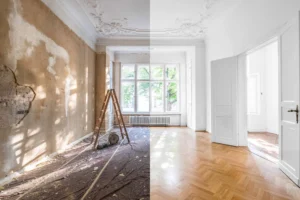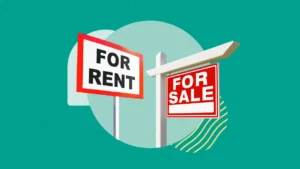Buying a home is a significant milestone, especially in the vibrant and diverse country of Ghana. Whether you’re looking for a cozy spot in Accra, a peaceful retreat in the countryside, or a modern residence in Tema, there are a few key points to keep in mind. This guide will help you navigate the exciting journey of homeownership in Ghana with essential considerations and tips for making the best decision.
Location Matters: Choosing the Right Neighborhood
Highlighting Tema: A Thriving Urban Center
Choosing the right location is crucial, and Tema stands out as a top choice for many homebuyers. Known for its planned neighborhoods and modern amenities, Tema offers a balanced lifestyle with easy access to both urban conveniences and serene coastal areas.
Key features of Tema include:
Proximity to Accra: Just 25 kilometers east of Accra, Tema provides a convenient commute for those working in the capital.
Industrial and Commercial Hub: Home to Ghana’s largest port, Tema is a bustling center of commerce and industry.
Modern Infrastructure: Well-planned roads, reliable utilities, and a variety of housing options make Tema an attractive location.
Other Key Locations
Urban Areas: Accra and Kumasi offer vibrant social scenes and modern amenities.
Rural Areas: The Volta Region and the Central Region provide peaceful environments and more space.
Key Factors to Consider
Proximity to Work: Reducing commute times can significantly improve your quality of life.
Access to Amenities: Schools, hospitals, shopping centers, and recreational facilities.
Neighborhood Vibe: Visit the area at different times of the day to get a true feel for the neighborhood.
Understanding Your Budget: What Can You Afford?
Assessing Your Financial Situation
Before getting too excited about that stunning house, you need to realistically assess your budget. Homes in Ghana come in all shapes and sizes, and prices vary widely.
Key financial considerations include:
Purchase Price: Ensure it aligns with your savings and income.
Additional Costs: Taxes, maintenance, utilities, and insurance.
Financing Options: Explore mortgages and loans available to you.
Budgeting Tips
Consult with Financial Advisors: They can help you understand your financial position and plan accordingly.
Use Online Calculators: These tools can give you a rough estimate of what you can afford based on your income and expenses.
Plan for Contingencies: Always set aside a buffer for unexpected expenses.
Know the Market: Timing is Everything
Market Trends
The real estate market in Ghana can fluctuate. Being aware of these trends can save you a lot of money. Key market indicators to watch include:
Buyer’s Market: More homes for sale than buyers, leading to lower prices.
Seller’s Market: More buyers than homes for sale, driving up prices.
Research and Resources
Real Estate Agents: They can provide insights into current market conditions and trends.
Online Real Estate Platforms: Websites like meQasa and jiji offer up-to-date listings and price comparisons.
Local News and Reports: Stay informed about economic and political developments that could impact the market.
Property Type: What Fits Your Lifestyle?
Types of Housing
Ghana offers various housing options, from traditional mud houses to modern apartments and luxury villas. Consider what suits your lifestyle best:
Apartments: Ideal for singles or small families. Often come with amenities like gyms and pools.
Houses: Suitable for larger families or those who prefer more privacy and space.
Gated Communities: Offer added security and communal facilities.
Lifestyle Considerations
Family Needs: If you have children, proximity to good schools and parks may be important.
Work Requirements: Consider the commute and access to business hubs.
Personal Preferences: Do you want a garden, a swimming pool, or a low-maintenance home?
Legal Considerations: Don’t Skip the Fine Print
Navigating Ghanaian Property Law
Buying property involves several legal steps to ensure the transaction is legitimate and secure. Important legal aspects include:
Title Search: Verify that the property has a clean title and is free of disputes.
Land Use and Zoning Regulations: Ensure the property use aligns with local zoning laws.
Sale Agreement: A legally binding document outlining the terms of the sale.
Professional Help
Local Attorneys: Consult with a local attorney who knows the ins and outs of Ghanaian property law.
Real Estate Agents: They can help with the paperwork and ensure everything is in order.
Infrastructure: Look Beyond the Property
Essential Infrastructure
When scouting for a home, consider the surrounding infrastructure. This impacts your daily life and property value:
Roads: Good roads are essential for easy access and commute.
Water Supply: Ensure there is a reliable water source.
Electricity: Check for consistent and reliable electricity supply.
Long-term Viability
Future Development Plans: Investigate any planned infrastructure projects that could affect the area.
Environmental Factors: Consider the environmental impact and sustainability of the area.
Community and Safety: Feeling at Home
Community Atmosphere
The community around your potential new home can greatly impact your living experience. Key aspects to consider include:
Friendly Neighbors: A supportive community can enhance your quality of life.
Local Activities: Opportunities for social engagement and community events.
Safety Concerns
Crime Rates: Research the crime statistics of the area.
Local Security Measures: Check if the community has security patrols or neighborhood watch programs.
Future Prospects: What’s Your Long-term Plan?
Long-term Goals
Consider your long-term goals when buying a home. Are you buying a starter home, or is this your forever home? Key considerations include:
Resale Value: Potential for property appreciation.
Family Growth: Room for a growing family or additional space for future needs.
Retirement Plans: Suitability for aging in place.
Investment Potential
Market Trends: Keep an eye on trends that could increase property values.
Development Projects: Future projects that could enhance the area’s appeal and value.
Take Your Time and Trust Your Gut
Buying a home in Ghana is an adventure filled with excitement and challenges. By considering location, budget, market conditions, property type, legal issues, infrastructure, community safety, and future prospects, you’ll be better equipped to make a smart decision. Remember, this isn’t just about a place to live; it’s about creating a home where memories are made. So, take your time, trust your instincts, and embark on this journey with confidence!


